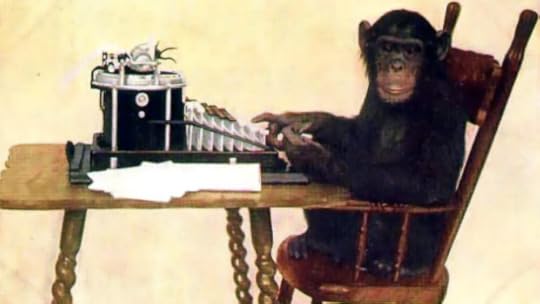Real Writers Don’t Self-Publish—Part 2

Image courtesy of Wikimedia
All righty, so last time in Real Writers Don’t Self-Publish we talked about a lot of myths that surround publishing in general and I promised to delve deeper into this subject. I hope, at the very least, y’all walked away with one core understanding about traditional publishing.
Traditional publishing measures one thing and one thing only…commercial viability.
Granted, this often means the author is professional and the writing is outstanding…but that’s isn’t always the case. Some works are published for the sole reason that they will sell a certain amount of copies (refer to Snookie’s memoir). Additionally some of the greatest works of our time are not coming to market (initially) through legacy presses (refer to The Martian).
But here’s the deal. While we certainly don’t have to be leggy-pressed to be “real” writers, self-publishing is no panacea.
The hard truth is there is a lot of junk being published. There are too many people who are so in love with the idea of calling themselves “published authors” that they take shortcuts, and I feel this is likely what irritates many professionals (especially since what this group lacks in skill and talent they tend to more than make up for in mass marketing).

But, the dangerous idea comes when we cut off our nose to spite our face.
We are SO scared that we are going to get lumped in with the folks who, frankly, should just increase processing speed by deleting Word off their hard drives, that we sit around believing we aren’t any good unless the Legacy Gods reach down from Olympus New York and give us their blessing.
NY is not going to give you (or me) a writing career. We have to hustle. Self-publishing actually has a lot of benefits not only for writers, but for traditional publishers as well.
Really, I Mean It
In my post The Ugly Truth About Publishing I explained how the consignment model worked and how mega-stores like Borders and Barnes & Noble obliterated the bookstore landscape. We discussed the terrible consequences writers have endured because of these companies’ greed.
Borders is now a memory and, trust me, Barnes and Noble isn’t far behind. They’re succumbing to the effects of their own avarice. Having a megastore on every corner was a sound business model…until everyone began shopping on-line.
If Barnes & Noble survives (which I highly doubt because, to date, they have not listened to my advice to SAVE them



